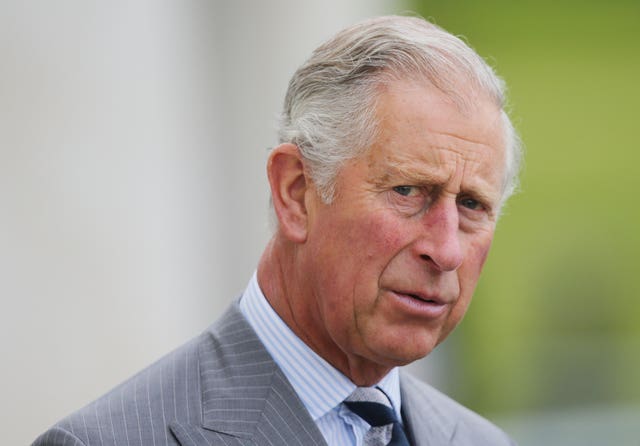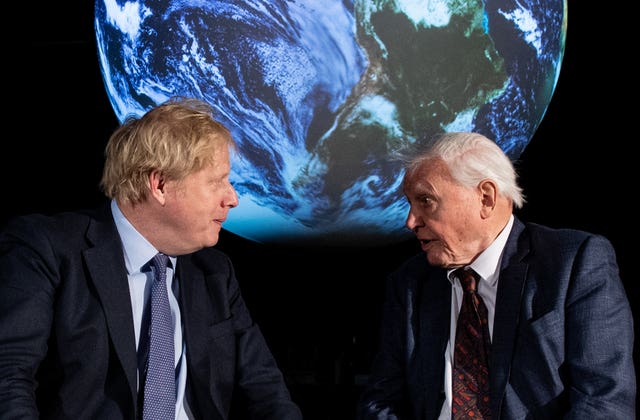
Vanessa Feltz 3pm - 6pm
2 February 2021, 16:14

The Prince of Wales issued the warning at the launch of a Treasury-commissioned report calling for nature to be properly valued.
It is “sheer madness” to continue on a path of destroying the natural world, the Prince of Wales has warned at the launch of a report for the Treasury.
Professor Sir Partha Dasgupta’s review of the economics of biodiversity – the diversity of life on Earth – calls for a transformation in economic approach that properly values nature and reduces the pressure humans are putting on it.
Charles warned that humans have already reached the point where there is not enough nature to meet our demands – and that while nature could recover if given the chance, the window to do so “is closing fast”.

“We all of us have a fiduciary duty to life on Earth, for we hold this planet in trust, having a duty of care that is absolute.
“Yet we know that, day by day, strand by strand, we are rapidly destroying the fabric of the natural world for ourselves and children and grandchildren, and testing this precious planet to destruction.”
And Charles told the audience at a virtual event hosted by the Royal Society: “It is sheer madness to continue on this path.”
Nature brings “essential dividends” for humanity, capturing carbon, providing food security, replenishing water and recycling oxygen, inspiring people’s spirits and promoting health and well-being.
“Put simply – something which one would have thought was blindingly obvious: without nature, there would be no life,” he said.
He called for large scale restoration of habitats, as well as conservation of what remains, and for people to “rewire” economies and financial models to incorporate climate and nature goals.
The review by Prof Dasgupta warns current economic growth and prosperity has “come at a devastating cost to nature”.
Since 1970, there has been almost a 70% decline on average in populations of mammals, birds, fish, reptiles and amphibians, and a million animal and plant species are thought to be threatened with extinction.
Nature is so important in boosting our health and wellbeing.
The Dasgupta Review has highlighted how it's also important for our economy and livelihoods.
You can read about how nature and economics go hand in hand here: https://t.co/meiug0GHv8 #TogetherForOurPlanet pic.twitter.com/ypWQCJD6x7
— Defra UK (@DefraGovUK) February 2, 2021
Now declines in biodiversity and the environment’s ability to provide food, clean water and air, regulate the climate and absorb pollution, are “fuelling extreme risk and uncertainty for our economies and wellbeing”.
Covid-19 and other infectious diseases, emerging because of habitat destruction and exploitation of species, could prove to be just the tip of the iceberg.
Rainforests and coral reefs face tipping points in which they are fundamentally altered in ways which could have “catastrophic consequences” for economies and well-being.
Fixing the problem requires action now, but would be less costly than delaying it, and will also help tackle other issues such as climate change and poverty, the review said.
It calls for humanity to ensure its demands on nature do not exceed sustainable supplies, by changing food production and consumption, restoring forests and protecting natural habitats.
And there is a need to move away from using gross domestic product (GDP) as a measure of economic success, to one that accounts for the benefits of investing in natural assets such as forests, soils and oceans alongside roads, machines, buildings, profits and skills.
And because many people have become distant from nature, establishing the natural world in education policy is “essential” to help empower citizens to make informed choices and demand action.
The report also suggests payments for countries to protect areas such as rainforests within their borders, while rents should be charged for activities in the high oceans, including shipping and fishing, and that ecologically sensitive areas should be protected.
Professor Dasgupta said: “Truly sustainable economic growth and development means recognising that our long-term prosperity relies on rebalancing our demand of nature’s goods and services with its capacity to supply them.
“It also means accounting fully for the impact of our interactions with nature across all levels of society.”

Prime Minister Boris Johnson said Prof Dasgupta report showed that “far from existing in opposition, the economy and ecology are inseparably intertwined”.
He said that the review proved that going green creates more jobs, and that was why the UK was building back greener from the pandemic.
“Today, Professor Dasgupta passes the baton to us, politicians, policymakers, business leaders and civil society, he’s shown why change must happen, and now it’s up to us to bring that change about.
“Biodiversity is not just a nice-to-have element of long term economic growth, it is an intrinsic part of that growth,” he added.
Sir David Attenborough said the report “will provide guidance for ecologists, economists and politicians who have the responsibility, through international platforms and on the ground, to avoid the disasters that currently threaten the very future of all life on this planet”.
Tanya Steele, chief executive at WWF, said: “To safeguard our future, we must transform our economies and finance systems, so they are geared towards restoring the natural world on which we all depend.
“Our climate and nature goals need to become a core part of how decisions are made on all aspects of policy – and in particular economic and fiscal policy, with a test to make sure public spending aligns with the Government’s net zero commitments.”